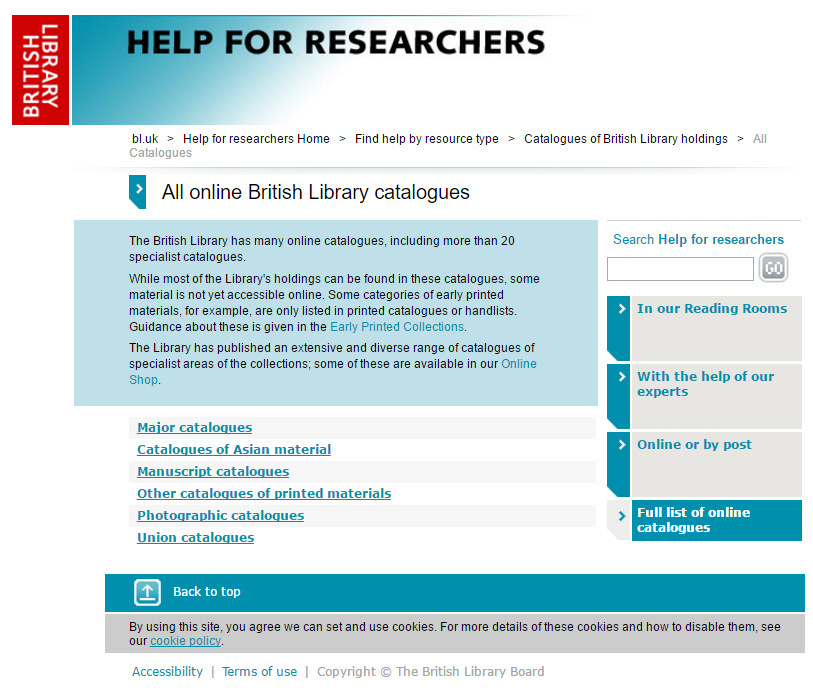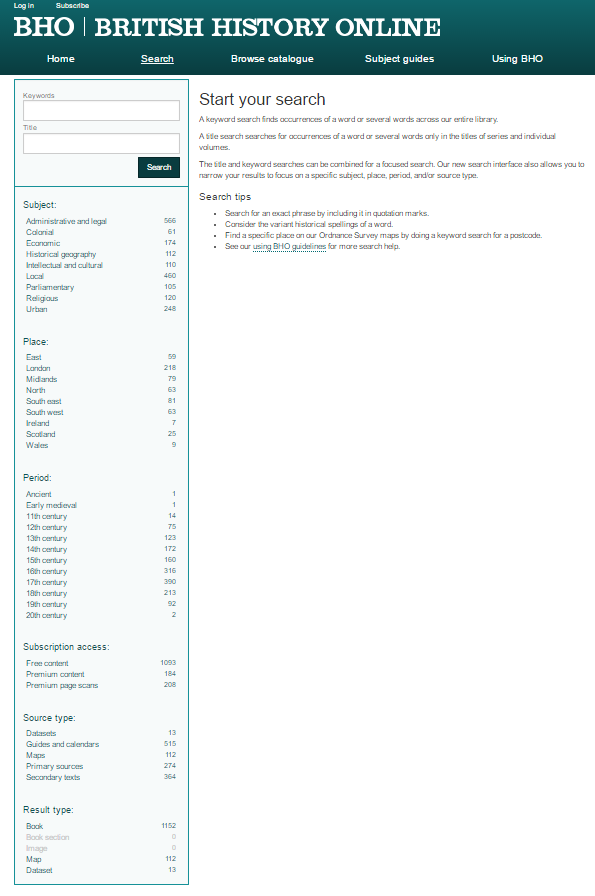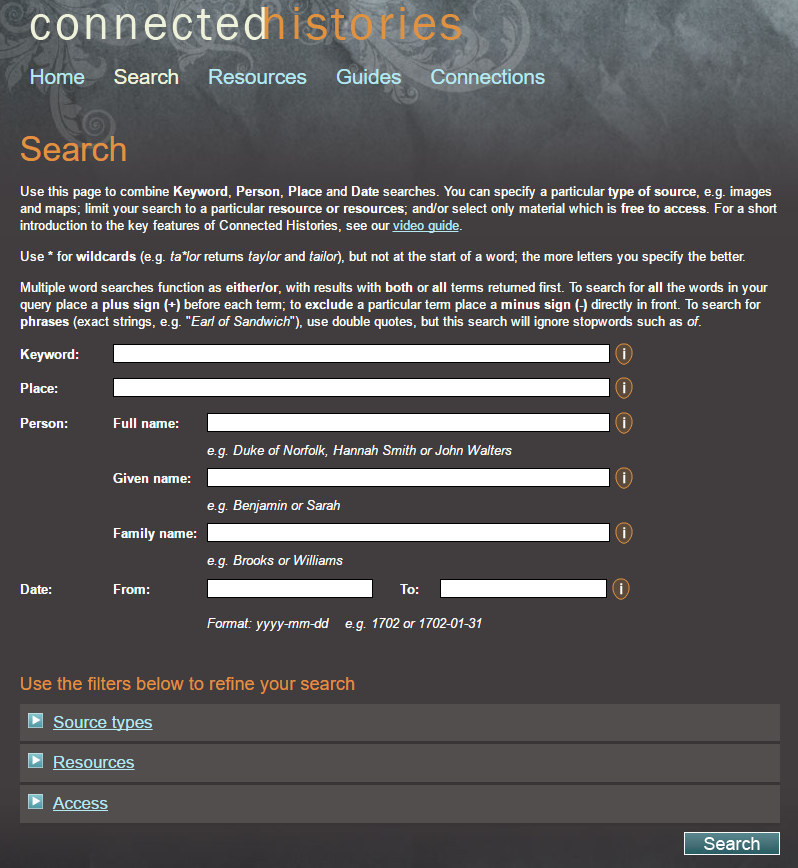Tools: Team Two
Team two: tailored search of historical documents
Contents
Team summary
We will explore how historians approach historical search when they are looking for people, places and dates. We will look at search engines employed by archives and libraries such as the National Archives and the British Library, at search tools provided by digital resources such as British History online and at federated search tools such as Connected Histories. We will look at search tools, glossaries, and lookup tables on the MarineLives wiki. Our focus will be on how historians really work, and on how technology can be used to speed up and make more effective the day-to-day task of historical search.
An explicit goal of team two will be to understand the semantic properties of the MarineLives semantic media wiki. This wiki was implemented in May 2015 by one of our volunteers, Rowan Beentje. With four million words of full text, over 10,000 manuscript images and over 20,000 pages, improved search will have a dramatic impact for all users of the wiki. A number of potential semantic search plug-ins exist, and we would like our volunteers to specify the functionality our users need and to explore the appropriate semantic search solution.
Historians - we need your input
The MarineLives Digital Pop Up Lab team would like to interview historians about their use of different search engines.
We are seeking to develop a detailed understanding of the types of searches historians perform and wish to perform, and the extent to which current search engines meet their needs.
We would like to explore with historians the specific functionality they would like to see for the MarineLives search engine.
All input will go into our development of a new semantic based search engine for the MarineLives wiki.
The five search engines we are interested in are (1) The National Archives, Kew: Discovery search engine (2) British Library catalogue (3) British History Online (4) Connected Histories and (5) the MarineLives wiki
Please contact us if you would like to do a fifteen minute Skype interview with one of our team
Planned interviews
- Louise Falcini, Monday 27th June 2016 @ 11 a.m. @louisefalcini [COMPLETED]
- James Brown, Intoxicants Project, Sheffield University [Day and time TBC; poss. Tuesday, July 5th 2016] @intoxproject
- Jenny Hyde, [Day and time TBC] @wallyberry
- John Levin, [Day and time TBC] @anterotesis
- Dr Cathryn Pearce, marine historian, Monday, July 4th 2016 @ 2 pm @CathrynPearce
Historical search interview guide
We would like to ask early modern historians of all types (social, economic, political, material, cultural, maritime) the following questions in a fifteen minute Skype interview:
(1) What is your experience of historical research?
- level of study (undergraduate, masters, PhD candidate, post-doctoral, early career scholar? established researcher)
- types of historical research performed?
(2) What search engines do you use to discover and access historical data?
- Google, archival search engines, library search engines, specialised search engines
- Do you use:
-- English National Archives Discovery search engine?
-- British Library catalogue search engines? [If so, which]
-- British History Online?
-- Connected Histories?
(3) What hardware do you use to access distorical data?
-- personal: laptop, desktop, I-pad, mobile phone?
-- institutional: library terminal?
(4) Choose one historical search engine that you find particularly useful, and talk us through how you use it:
-- Do you structure a search strategy in advance of starting top work with the search engine?
-- Do you write down a search strategy?
-- Do you identify key words or phrases to search for?
(5) Staying with the historical search engine you have chosen in your response to (4), talk us through how you would:
-- research a person?
-- research a place?
(6) How do you capture the results of your searches?
-- do you create a word document or Excel spreadsheet in which to store the searches?
-- do you keep a record of the search terms which generated your results?
-- do you store the search results and extracts of the records they refer to in the same word document or Excel spreadsheet?
(7) How do you sequence your searches and your use of search engines?
-- do you work methodically through predefined search terms in one search engine and then move on to the next one?
-- do you have multiple search engines open at the same time and move backwards and forwards between them in response to specific research results?
(8) Have you performed searches on the MarineLives wiki?
-- If so, please tell us about your experience of searching the MarineLives wiki?
-- What tools have you used to find data on the wiki (vertical sidebar; lists of deponents; thematic pages; search box in top right hand corner of each wiki page)?
-- What improvements would you like to see to MarineLives wiki searchability and discoverability?
Semantic search on MarineLives Semantic Media Wiki
The MarineLives wiki is a Semantic Media Wiki. For technological background see [Tools: Tech Talk|Rowan Beentje, 'Tech Talk', June 27th 2016]
The semantic features of the wiki offer the ability to specify semantic searches.
Search screens
Useful links
National Archives advanced search
British Library catalogue search
British History online search
Connected Histories search
Semantic MediaWiki


